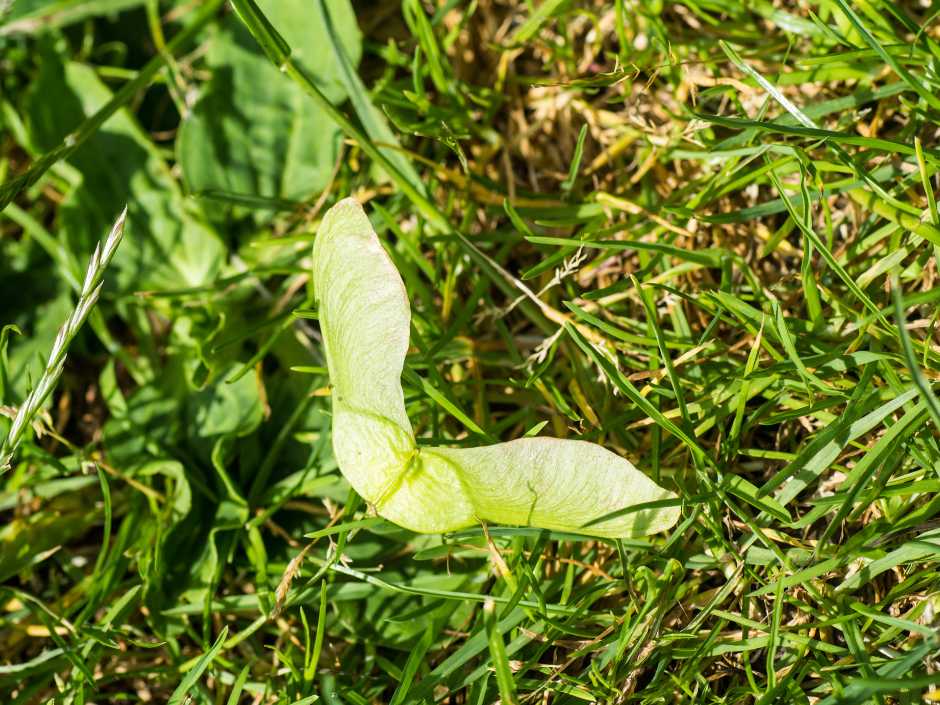Atypical Myopathy (AM) is a serious and, sadly, often fatal muscle disorder. It is usually caused by horses eating sycamore seeds, leaves and seedlings (hence it is also known as sycamore poisoning). However, some other types of acer can contain the toxin that causes AM (hypoglycin A). Atypical Myopathy is also sometimes known as Seasonal Pasture Myopathy (SPM). This guide outlines the main Atypical Myopathy symptoms, as well as how it can be treated and prevented.
Equine Atypical Myopathy Symptoms
The onset of Atypical Myopathy is rapid, and it can affect individuals or groups of horses. Some horses are more susceptible to AM than others.
The symptoms of sycamore poisoning in horses include:
- Muscle weakness, soreness or stiffness: The hypoglycin A (HGA) toxin mainly affects the heart and muscles that help the horse to stand.
- Lethargy and fatigue: The horse may struggle to move, stand or breathe
- Heart and respiratory problems
- Muscle trembling
- Colic-like symptoms
- Brown or dark red urine
Atypical Myopathy is not contagious, but care should be taken to assess and monitor other horses grazing in the same area. It is important to note that just because other horses have or have not suffered from AM, it does not mean that all horses grazing on the same pasture will be affected in the same way. Genetic factors, grazing habits and weather conditions all appear to be factors.
Atypical Myopathy Treatment
Suspected Atypical Myopathy cases require urgent veterinary treatment. The survival rate for horses with sycamore poisoning are around 30-40%, and the chances of survival are mostly dependent on the horse being treated quickly. Your vet will be able to advise you on the best course of action for your horse.
Other horses grazing the same pasture as the suspected or confirmed case should be moved to another pasture and monitored closely. There is no way of telling which horses are more or less susceptible to AM.
As it can take a number of days to get confirmation of an Atypical Myopathy diagnosis, treatment is usually commenced immediately in suspected cases. Medicines can be administered to stop the absorption of the HGA toxin.
Preventing Sycamore Poisoning in Horses
There are a number of steps that can be taken to minimise the risk of sycamore poisoning. Regularly checking for and removing acer leaves, seeds and seedlings (particularly sycamores) is the best way of preventing AM. Remember that sycamore seeds are designed to travel by air (hence their propeller-like shape), so it’s worth keeping an eye on neighbouring areas.
Seedlings tend to be the main concern in the spring, whilst seeds and leaves are a bigger problem in the autumn. You can mow the grass and collect the cuttings in the spring in order to remove the seedlings. Remember that the cuttings will still contain the HGA toxin, so they must be removed and disposed of properly.
Avonvale Equine Vet Practice | Emergency Equine Vet
At Avonvale Equine Vet Practice, we offer 24/7 emergency call-outs. Night or day, if you suspect your horse is suffering from Atypical Myopathy or any other veterinary emergency, call our emergency line immediately on 01295 670 501. There is always an Avonvale Equine vet on-call and ready to help your horse, pony, donkey or mule. We are also happy to advise our clients, so if you would like to know more about how to identify and prevent atypical myopathy, register with us today.









